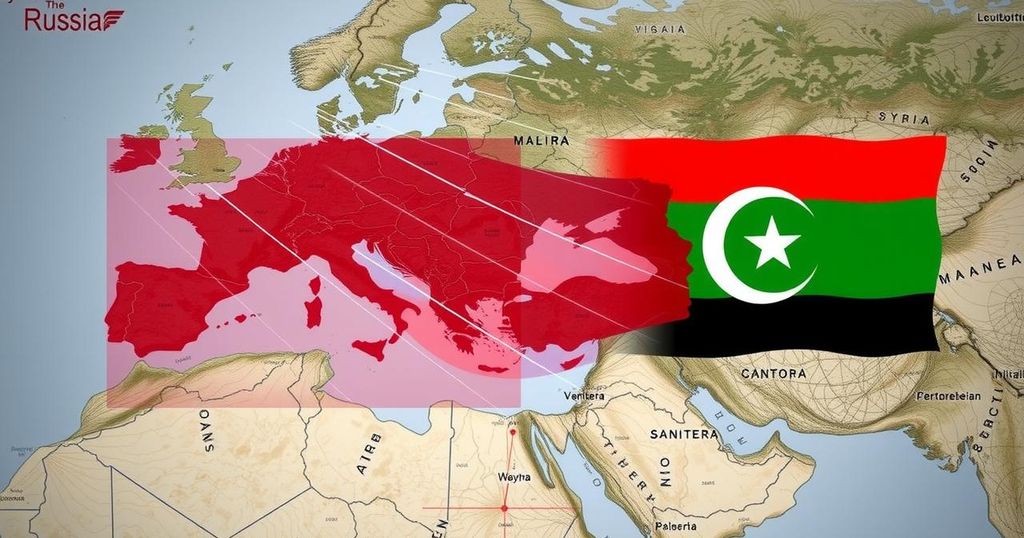Russia is shifting its focus from Syria to Libya, marked by the decline of Assad’s regime. This transition underscores Russia’s broader political strategy of leveraging fragile alliances. As Moscow strengthens its foothold in Libya through Haftar, the West faces the challenge of addressing its impact while cautiously managing its own interests in the region.
Russia is currently undergoing a precarious transition from its involvement in Syria to a strategic focus on Libya. The recent decline of Syrian President Bashar al-Assad, previously supported by Russian military resources, signals a pivotal moment for Moscow as it seeks to recalibrate its alliances and military positioning. The movement of Russian troops and assets into Libya indicates a continuation of its geopolitical ambitions, aimed at countering Western influence in the region.
The dynamics surrounding this pivot highlight a significant aspect of Russian foreign policy – the interlinked nature of its various alliances rather than the mere replacement of one partner with another. Both Assad and Libyan National Army (LNA) Commander Khalifa Haftar embody a broader strategy of manipulation, wherein Russia utilizes these authoritarian figures as instruments of its foreign agenda, despite the inherent risks and fragility these leaders face. As the West attempts to engage with Haftar, their misunderstanding of his dependency on Russian support could lead to further geopolitical miscalculations.
The consequences of overlooking the complexities of Haftar’s position are profound. The West needs to recognize that its approach to fostering alliances in the region must evolve. It is crucial to focus on supporting robust governance and developing critical institutions in Libya to counteract external influences. The lessons drawn from the current situation underscore the necessity of proactive strategies that prioritize stability and resilience over reactive, short-term engagements.
As Russia seeks to solidify its influence in Libya, the West must remain vigilant and reevaluate its strategies to prevent falling into new traps that could undermine its interests. The historical context and current geopolitical landscape serve as reminders of the delicate balance of power in the region and the need for an informed, cohesive approach to international relations.
The current geopolitical pivot of Russia from Syria to Libya comes in the wake of a significant shift in its regional strategies. The collapse of Assad’s hold over power in Syria has prompted the Kremlin to rethink its alliances and military objectives. Historically, Russia’s involvement in both Syria and Libya reflects its long-term aspirations for greater influence in the Mediterranean and Africa, particularly in countering Western dominance. The strategic realignment is not just about engagement but also seeks to adapt to changing circumstances while maintaining a foothold in critical power dynamics within the region.
In conclusion, as Russia’s maneuvers towards Libya showcase its ongoing commitment to expanding influence in a historically significant region, the West must critically reassess its understanding of alliances and dependencies. Recognizing the vulnerabilities intrinsic to figures like Haftar, who rely heavily on foreign patronage, is essential. Future strategies must prioritize genuine governance and economic resilience within Libya, ensuring that external powers cannot exploit existing weaknesses. This proactive stance will be vital in sustaining stability and limiting Russia’s growing involvement in North Africa.
Original Source: www.atlanticcouncil.org






